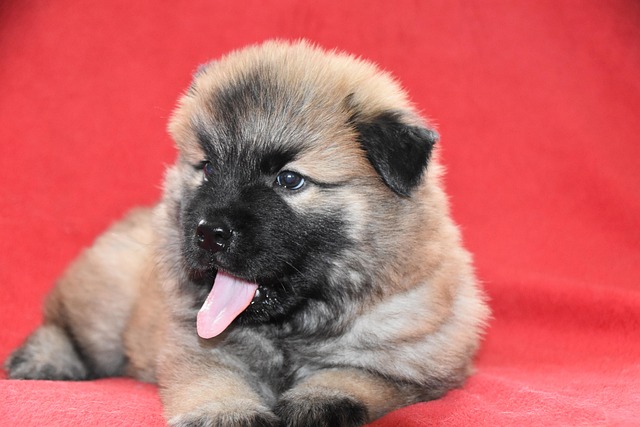
How to treat dog skin allergies
In the late night, under the table lamp, you are awakened by a frequent scratching sound. Turning your head, you see your usually
Vomiting and diarrhea in dogs are common health alarms that cannot be ignored. Behind this problem that worries countless owners, there are complex physiological mechanisms and individual differences. From the moment we discover the symptoms, we are like entering a silent battle against time. We hope that our fur children can recover quickly, but we are also anxious about the unknown recovery time.
The dog's digestive system is like a precision-operated factory. Any slight interference may cause a malfunction. When vomiting and diarrhea strike, the length of recovery time is like a kite pulled by countless strings. The cause, age, physique, and treatment plan are all key influencing factors. The most common improper diet, such as eating spoiled food by mistake and suddenly changing dog food, is like pressing the chaos button for the digestive system. In this case, as long as the diet is adjusted in time and the stomach and intestines are given a period of rest, most dogs can recover within 1-2 days. Just like we get better soon after adjusting our diet when we have a stomachache, the dog's stomach and intestines also have a certain self-healing ability.
But if it is infected with infectious diseases such as parvovirus and coronavirus, the situation is much more complicated. These invisible enemies will wreak havoc in the dog's body, attack intestinal cells and interfere with normal digestive function. Puppies are more vulnerable because their immune systems are not yet fully developed. In the face of such diseases, dogs need to go through a long treatment process, usually 1-2 weeks or even longer. In the isolation ward of the pet hospital, they have to receive infusions to replenish water and nutrition, use antiviral drugs to fight infection, and fight the disease every minute and every second.
 Intestinal parasites are also a common culprit for vomiting and diarrhea in dogs. Parasites such as roundworms and tapeworms parasitize in the intestines, not only robbing nutrients, but also damaging the intestinal mucosa. After deworming treatment, the recovery time of the dog depends on the degree of infection. For dogs with mild infections, the symptoms will gradually ease 3-5 days after taking deworming medicine as the parasites are cleared. But if the infection is severe and the intestines have been significantly damaged, it may be necessary to cooperate with drugs to repair the intestinal mucosa, and the recovery period will be extended to 1-2 weeks. This process is like re-laying the foundation for the injured intestine, and you need to wait patiently for it to heal slowly.
Intestinal parasites are also a common culprit for vomiting and diarrhea in dogs. Parasites such as roundworms and tapeworms parasitize in the intestines, not only robbing nutrients, but also damaging the intestinal mucosa. After deworming treatment, the recovery time of the dog depends on the degree of infection. For dogs with mild infections, the symptoms will gradually ease 3-5 days after taking deworming medicine as the parasites are cleared. But if the infection is severe and the intestines have been significantly damaged, it may be necessary to cooperate with drugs to repair the intestinal mucosa, and the recovery period will be extended to 1-2 weeks. This process is like re-laying the foundation for the injured intestine, and you need to wait patiently for it to heal slowly.
In addition to disease factors, the dog's age and physique also play an important role in the recovery process. Young, strong and physically fit dogs are like warriors with strong backing, and they have more "ammunition" to fight against diseases. They have a fast metabolism and strong tissue repair ability, and they can often recover in a relatively short time. Old dogs are like old ships that have experienced wind and rain. Their body functions gradually decline, their immunity decreases, and it is much more difficult to recover. For the same disease, old dogs may need twice as much time to recuperate as young dogs, and every recurrence of the disease makes the owner's heart hang higher.
Scientific treatment plans are the key to helping dogs recover faster. Once a dog is found to be vomiting and diarrhea, timely medical treatment is the first priority. Veterinarians use detailed interviews, physical examinations, fecal testing and other means to unravel the cause of the disease and then develop personalized treatment plans. Dogs with mild symptoms may only need to adjust their diet and take probiotics to regulate intestinal flora; while dogs with serious conditions need to be hospitalized for comprehensive treatment. During the treatment process, the owner's careful care is also indispensable. Strictly control the diet according to the doctor's advice, from fasting to gradually resuming feeding, every step must be cautious; regularly measure body temperature and observe defecation. These trivial but important tasks carry the owner's full love and concern.
In the days of waiting for the dog's recovery, every subtle change affects the owner's heart. When the dog begins to sniff food actively and when the diarrhea frequency gradually decreases, these small improvements are the dawn of hope. Even if there are occasional relapses during the recovery process, don't be discouraged, because the dog's body needs time to adjust and repair when fighting the disease.
There is no standard answer to the time it takes for a dog to recover from vomiting and diarrhea. It is the result of the combined effect of multiple factors. But no matter how long it takes, as long as we give professional treatment, careful care and endless love, we will definitely wait until the day when the dog is alive and kicking again. During this difficult time, we and the dog accompany each other and grow together. Every victory over the disease makes our feelings deeper and makes us more aware of the fragility and tenacity of life.

In the late night, under the table lamp, you are awakened by a frequent scratching sound. Turning your head, you see your usually

When we see our usually lively furry friend suddenly lose its appetite, vomit, have diarrhea, and curl up in the corner listlessly, our hearts ache. A dog's gastrointestinal discomfort is like a silent battle.

When stroking a beloved dog, the palm gets covered with fine dog hair; when cleaning the corners of the house,

In the streets and alleys of the UK, one can always see the warm scene of pet owners strolling leisurely with their dogs.

When seeing a beloved dog that is usually lively and energetic scratching and biting the affected area due to moist dermatitis, and even getting restless, the heart of every dog owner will be filled with concern.

When a dog that is usually lively and active suddenly curls up in a corner and is no longer interested in food, or vomits or has diarrhea frequently, the owner's heart will tighten.